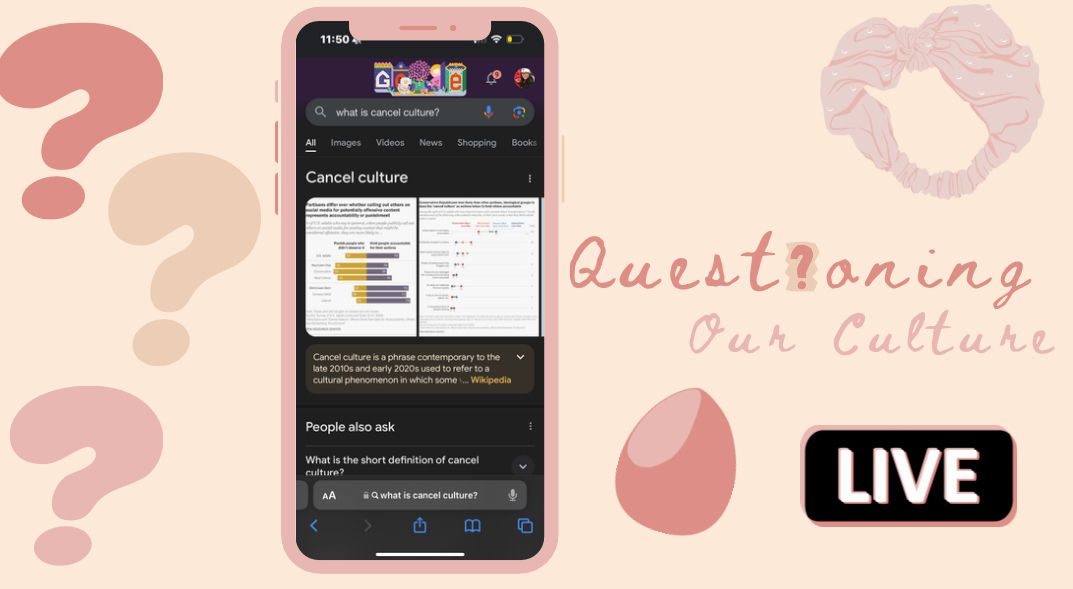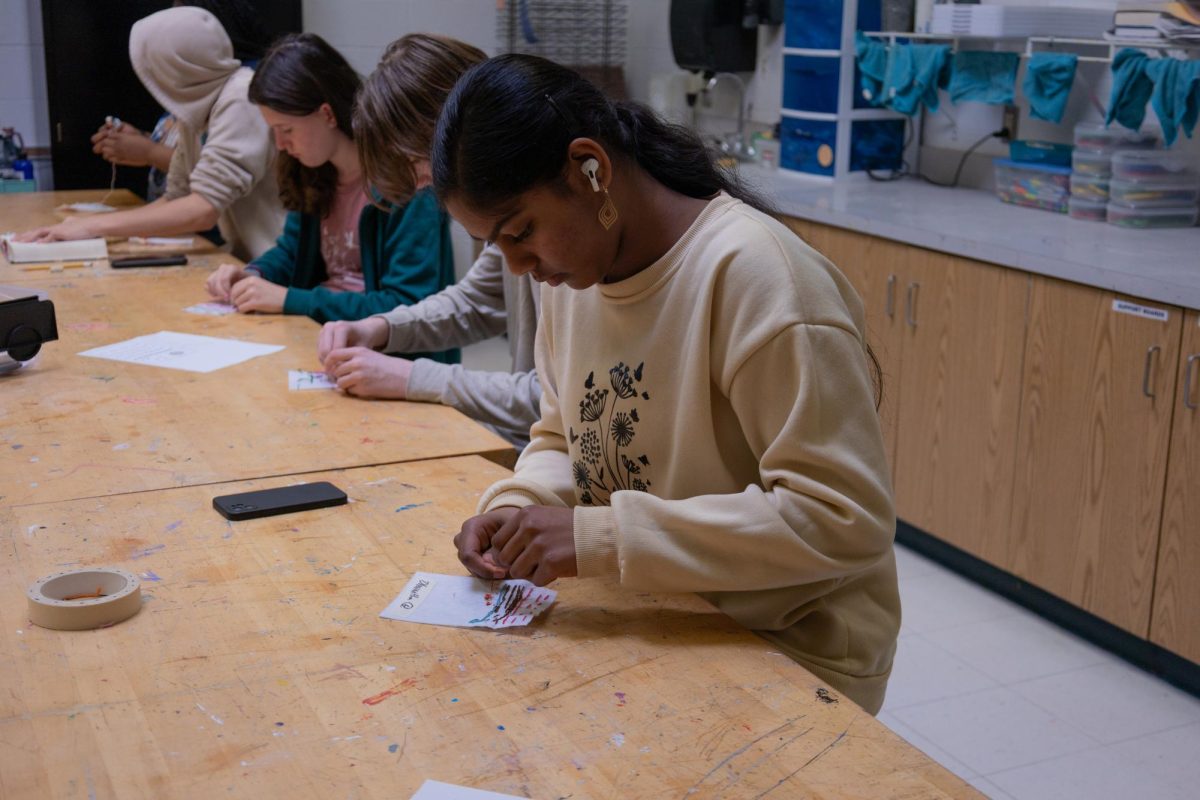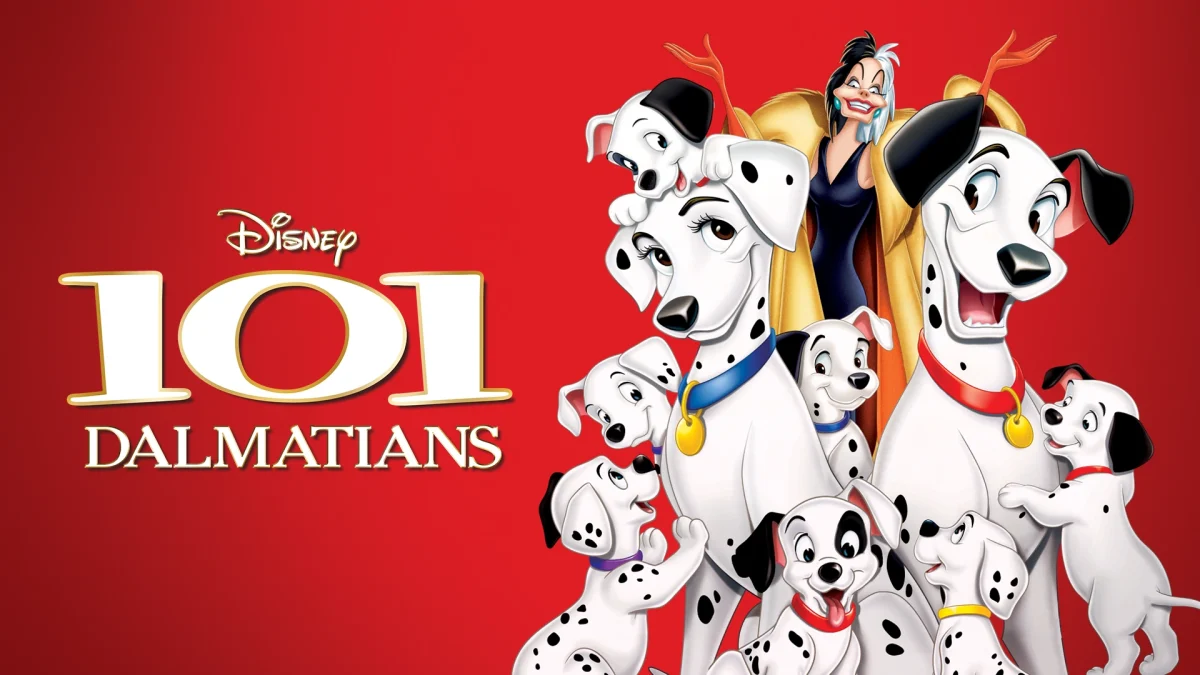On my average day as a trend-following seventeen year old girl, my finger taps on the TikTok icon a hundred times a day. I fall into my daily deepdive of “Get ready with me!” videos from overly privileged and out of touch influencers casually using overpriced products on their face while finding superficial things to complain about. The truth is, I love having social-media stars and celebrities to idolize, because hearing them yap about what trends they love or listening to a depthless storytime about their ‘trip to Cancun gone wrong!’ makes me feel like I can live vicariously through these people’s lives. With so many of us watching and doing the same thing, it creates an odd and parasocial relationship between influencers and their followers. With so many of us following them and their content, it becomes easy to dig up information about their history they might want covered. Creators get cancelled at the snap of a finger, because we give almost anybody a platform.
The influencers we choose to follow, idolize, and interact with are always the ones with problematic roots that become resurfaced when they begin to gain fame on their account. My mind always gets brought to Isa Escu, the 16 year old TikToker who made ‘get ready with me’ videos, a popular trend growing amongst the teen girl audience. She grew a platform of nearly 2 million followers in the span of less than six months from her beauty and seemingly kind spirit, and followers were easily influenced to buy whichever skincare or makeup brands she was using. I admit, I was one of her many followers that got influenced to buy the 24 dollar Summer Friday lip balm because I was simply convinced using the same lip products as her could somehow turn me into her. I have also fallen victim to the ‘clean girl aesthetic’ trend that is loved by girls everywhere, and Isa fit the box perfectly.
But like most influencers, she had a different personality off-screen that involved lots of problematic behavior, which ended up getting exposed to the internet. She lost nearly a million followers after this incident, and she officially became a part of the group of influencers that are “canceled.” People talk and post about it for a week, and then a new influencer comes into the mix and replaces the last.
I always wonder if I’m the only one who sees right through their persona, or if I might just be projecting my jealousy onto them. Regardless, it doesn’t matter how I feel about these videos since I chose to watch and interact with their account, which only adds more money into their pockets. Isa made almost fifty thousand dollars off of her apology video, so was she really held accountable at all if she practically got paid to be canceled?
It always makes me think how I’d feel if I went viral and got canceled all within the same year. I’d always like to think I’d use my platform for good if I ever got one, but it’s hard to not let fame and followers get to your head. Some influencers seem as if they’ll never change no matter how big their follower count gets, which can be both negative or positive. Creators like Tana Mongeou and Trisha Paytas speak on their respective podcasts about having a platform at a younger age and the mistakes they made. But cancel culture wasn’t around back then since society was very different 10 years ago, and social media creators were restrained to mainly Youtube. Now, we see people go viral for their TikTok accounts, Instagram fame, podcasts, twitter, etc. and it’s overwhelming to keep track of who’s still relevant.
There are definitely creators I currently follow and keep track of that are just waiting to be cancelled. The idea that anybody can truly gain a platform and become famous with the right mindset is frightening, because it’s easy to forget these are real life people who have the capacity to do and say bad things. Distancing myself from heavily idolizing celebrities and humanizing them instead has made it easier to see which creators genuinely care, or do it for the clout. Doing this improved my view on materialistic items or follower count, and showed it doesn’t matter how many products or fans you might have. Being problematic will cost you in your future, but spreading good energy to your millions of viewers has no price.










